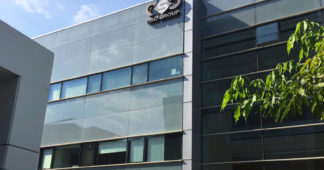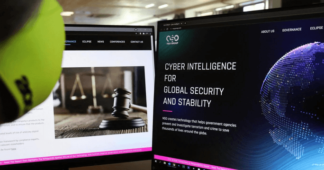Israeli surveillance companies and use of spyware tools should be further regulated following reports of hacking of several aid workers’ phones, experts say
Umar A Farooq
18 November 2021
Israel’s surveillance of Palestinians and the hacking of several aid workers’ phones have highlighted the transnational threat of unregulated Israeli spyware, experts said on Thursday.
During a panel hosted by the Foundation for Middle East Peace (FMEP), experts and digital rights advocates noted that the case of targeting Palestinians is not unique and that spyware created by Israeli software companies has been used by a number of countries around the world.
“All of the news surrounding the NSO group, since 2016, but especially in the past few months, has really demonstrated – for people who are paying attention to it – the complete lack of international regulation on the use of so many of these surveillance technologies,” said Sophia Goodfriend, a researcher at the Arab Center for Social Media Advancement, known as 7amleh.
“And I think there’s a continuous appetite for news about the NSO group because it really does highlight how international law has not kept up technological innovation.”
Earlier this month, a report by The Washington Post revealed that “Blue Wolf” – a smartphone technology – had been used by Israeli authorities to capture photos of Palestinians across the occupied West Bank, often without their permission.
The phones of several Palestinian staff members working for human rights organisations recently designated by Israel as “terrorist organisations” were also hacked using the Pegasus spyware, which is made by the Israeli company NSO.
Middle East Eye reported earlier this week that Israel had the capacity to monitor every telephone call taking place in either the West Bank or Gaza.
And on Tuesday, it was revealed that Middle East Eye had been the target of a 2020 “watering hole” attack with links to Candiru, a highly-secretive Israeli firm that only sells its spyware to governments.
“The stories of NSO group, Candiru and many others go on to show and demonstrate that these technologies have a transnational impact that impacts many of us living in different parts of the world,” said Marwa Fatafta, a policy manager at Access Now.
Regulating spyware
Pegasus software, produced by the Israeli NSO Group, has been used by governments, including Morocco, Saudi Arabia, and the United Arab Emirates, to illegally access the phone data of activists and journalists worldwide.
In July, journalists working with cyber-security campaigners, including Amnesty Tech, obtained a leaked database of 50,000 phone numbers selected by NSO Group clients. The reporting revealed the widespread and international use of spyware to target politicians, activists and journalists.
Since the slew of reports this year over the use of Israeli spyware technology, calls to blacklist these companies and also further regulate the use of surveillance tools have grown.
On 3 November, the US Commerce Department blacklisted NSO and Candiru, accusing the companies of activities that run contrary to American national interests and security.
“It’s important to note the recent blacklisting of NSO and Candiru by the US Department of Commerce, and we think this is a great step towards scrutinising these companies,” Fatafta said.
“These companies need to be blacklisted, sanctioned and made basically a hot potato that nobody wants to touch or make business with.”
Still Avner Gvaryahu, executive director of Breaking the Silence – an organisation of Israeli veterans that work to expose the reality of everyday life in Occupied Palestine – said he was not “holding his breath” when it comes to further action against the companies.
“When it comes to Europe, I think that there’s a fear of actually standing up to the Israeli government’s policies,” he said.
The British government has so far refused to say whether it has or will complain to Israel regarding reports that Candiru, which has already been sanctioned by the US, was linked to an attack on a number of news sites, including Middle East Eye.
Published at www.middleeasteye.net
We remind our readers that publication of articles on our site does not mean that we agree with what is written. Our policy is to publish anything which we consider of interest, so as to assist our readers in forming their opinions. Sometimes we even publish articles with which we totally disagree, since we believe it is important for our readers to be informed on as wide a spectrum of views as possible.











